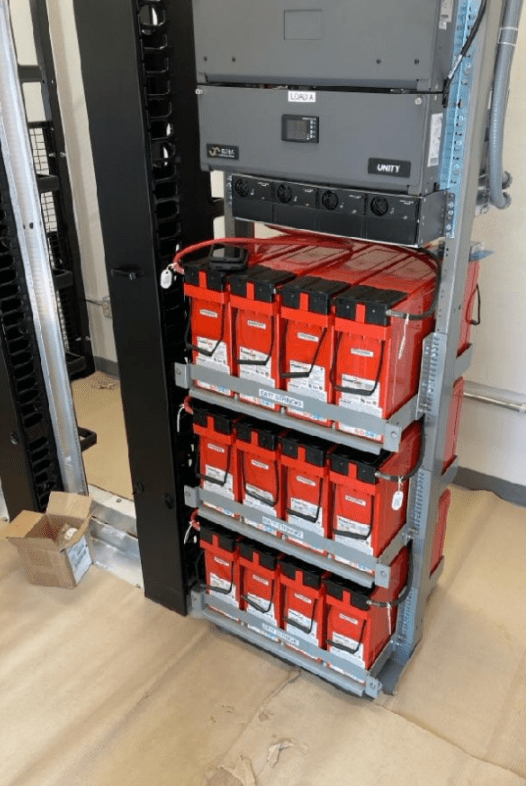Choosing the Right Battery Backup System: A Comprehensive Guide
When it comes to ensuring uninterrupted power for your business, a reliable battery backup system is essential. Power outages can be costly, inconvenient, and even dangerous, especially if you rely on critical systems or sensitive equipment. With various options available on the market, choosing the right battery backup system can seem overwhelming. This comprehensive guide will help you navigate the process, so you can make an informed decision that meets your needs.
1. Understand Your Power Needs
Before selecting a battery backup system, it’s crucial to assess your power requirements. Start by identifying the critical devices or systems that need to stay operational during a power outage. These things may vary based on your specific application for critical power such as electric utility, telecommunications, datacenter, etc. Some common items could include:
- Business essentials: Servers, communication systems, computers and security systems
- Communications Equipment: routers, switches, alarms, and 911
- Protection Equipment: breakers, protective devices, fault clearing, switchgear
Once you’ve identified these, calculate the total wattage or amp-hour required to power them. This will give you an idea of the capacity you need in a battery backup system.
2. Types of Battery Backup Systems
There are several types of battery backup systems available, each with its own advantages and disadvantages:
- Uninterruptible Power Supply (UPS): Ideal for short-term power needs, UPS systems provide instant power to connected devices during an outage. They are commonly used for computers, servers, and other sensitive electronics.
- Home Battery Systems: Designed for longer-term outages, these systems can power larger appliances and multiple devices simultaneously. Often used in conjunction with solar panels, they offer a sustainable energy solution.
- Commercial Battery Backup Systems: For businesses that require continuous power, these systems provide large-scale energy storage and can keep entire operations running during extended outages. Examples would be a Wireless Cell Site, Telephone Office, or other.
3. Consider Battery Capacity and Runtime
The capacity of a battery backup system is measured in amp-hours (ah), watt-hours (Wh), or kilowatt-hours (kWh). This indicates how much energy the battery can store. The runtime, or how long the battery will last during an outage, depends on the capacity and the load (the total wattage of the devices it’s powering). When choosing a system, ensure the battery capacity matches your power needs. For instance, a higher-capacity battery will be able to support more devices or keep them running for a longer period. It’s also important to consider whether the battery can be expanded or scaled up as your power requirements grow.
4. Evaluate Battery Type
The type of battery used in a backup system affects its performance, lifespan, and maintenance requirements. The most common battery types include:
- Lead-Acid Batteries: These are traditional and cost-effective but require regular maintenance. Different technologies have different life spans.
- Lithium-Ion Batteries: Popular for their expected longer lifespan and minimal maintenance, lithium-ion batteries are becoming more commonly used in backup systems.
- Nickel-Cadmium Batteries: Known for their durability and ability to operate in extreme temperatures, but they can be more expensive than other types and costly to recycle.
- Flow Batteries: Emerging technology that offers long-term energy storage, but they are currently less common and more expensive.
5. Check for Features and Smart Capabilities
Modern battery backup systems often come with advanced features that enhance their usability and efficiency. Look for systems with:
- Smart monitoring: Allows you to track energy usage, battery health, and performance in real time via a mobile app or online portal.
- Modular design: Allows for easy expansion of battery capacity as your power needs grow.
- Safety features: Such as overcharge protection, short-circuit protection, and temperature monitoring.
6. Budget and Cost Considerations
Battery backup systems can be a significant investment, so it’s important to balance your budget with your power needs. While it may be tempting to choose a cheaper option, remember that lower-cost systems may have shorter lifespans and lower capacity. Investing in a high-quality system can save you money in the long run by providing more reliable power.
Conclusion
Choosing the right battery backup system is an important decision that requires careful consideration of your power needs, battery type, capacity, and budget. By understanding these factors and evaluating your options, you can select a system that ensures continuous power during outages, protects your critical devices, and provides peace of mind. Check out our Reserve Power Product selection on our website to see more details on technologies along with manufacturer data sheets. Our Swift Industrial Power sales team is here to assist you with the best solution for your application.

